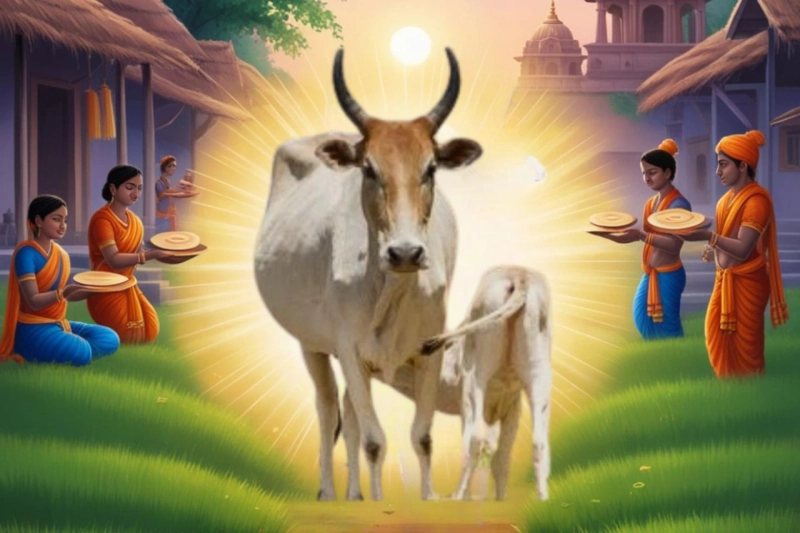In Hinduism, the cow is revered not merely as an animal but as a divine entity, embodying purity, abundance, and spiritual elevation. Often referred to as "Gau Mata" (Mother Cow), the cow holds a central place in the spiritual and cultural fabric of India.
Symbolism of the Cow in Hinduism
The cow's significance is deeply rooted in Hindu scriptures and traditions. According to the Rigveda, the cow is extolled as a source of nourishment and prosperity for society. The Atharvaveda condemns the killing of cows, equating it to the killing of a Brahmin, highlighting the sanctity of this animal .
One of the most profound symbols associated with the cow is Kamadhenu, the divine wish-fulfilling cow. Kamadhenu is believed to grant all desires, bestowing wealth, spiritual wisdom, and well-being upon those who revere her .
Spiritual Benefits of Cow Worship
Engaging in cow worship, or Gau Puja, is considered a pathway to spiritual progress. The act of serving and honoring cows is believed to purify the mind and soul, fostering virtues like compassion, humility, and gratitude. The presence of cows is said to create an environment conducive to spiritual growth, elevating the consciousness of individuals and communities .
Cows and Prosperity
Beyond spiritual benefits, cows are also associated with material prosperity. The products derived from cows—milk, curd, ghee, urine, and dung—are integral to various rituals and daily life. These substances are considered purifying and are used in offerings, medicines, and as natural fertilizers in agriculture. The holistic utility of cows contributes to the economic and ecological well-being of society.
Krishnayan's Commitment to Cow Welfare
At Krishnayan, the reverence for cows is manifested through dedicated efforts in cow protection and welfare. The organization operates one of India's largest gaushalas, providing shelter and care to thousands of cows and bulls. Through initiatives like cow adoption, free milk distribution, and online cow donation services, Krishnayan enables individuals to participate in the noble cause of cow protection. These efforts not only contribute to the well-being of cows but also promote the spiritual and cultural values associated with cow reverence.
Conclusion
The cow's role in Hinduism transcends its physical presence; it is a symbol of spiritual progress and prosperity. By honoring and protecting cows, individuals and communities can cultivate virtues that lead to a more harmonious and prosperous life. Organizations like Krishnayan play a pivotal role in preserving this sacred tradition, ensuring that the legacy of cow reverence continues to thrive in contemporary society.


